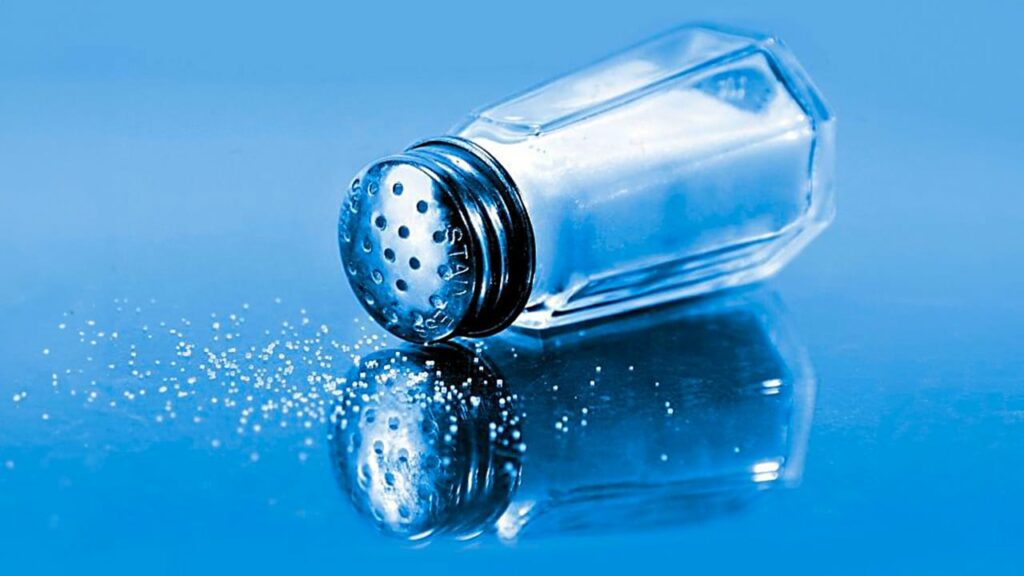Switching to a salt substitute from regular sodium chloride significantly reduced the risks for stroke recurrence and death, offering patients a practical, low-cost therapeutic option, according to new data released today from a prespecified subgroup analysis of data from the Salt Substitute and Stroke Study(SSaSS) trial.
The open-label, cluster-randomized clinical trial was conducted in 600 northern villages in China. The subgroup analysis consisted of patients who self-reported a hospital diagnosis of stroke.
In the trial, which assessed 15,249 patients with stroke, the use of a salt substitute cut the risk for recurrent stroke by 14% (relative risk [RR], 0.86; 95% CI, 0.77-0.95, P = .005).
Reductions in the risk for hemorrhagic stroke were larger (relative reduction, 30%; P = .002). Risk for death was reduced by 12% (95% CI, 4%-18%; P = .003), with larger effects on stroke-related death (relative reduction, 21%; P = .01) over a mean follow-up period of 61.2 months.
The risk reductions were consistent across subgroups and sensitivity analyses, and the increased risk for hyperkalemia was not significant (RR, 1.01; 95% CI, 0.74-1.38; P = .96).
No Increased Risk for Hyperkalemia
In the sensitivity analyses, participants with repeated recurrent strokes during the follow-up period were excluded, imbalances in baseline characteristics were adjusted, and “possible” and “probable” and “definite” were added to the definition of primary outcome events.
Of the 20,995 people enrolled in the trial, only patients with a history of stroke were assessed in the prespecified subgroup analysis of 7703 in the salt-substitute group and 7546 in the regular-salt group. Mean age was 64 years, and 54% of participants were male. The salt substitute consisted of 75% sodium chloride and 25% potassium chloride by mass.
Concerns about hyperkalemia in the trial have been raised often, Daniel W. Jones, MD, from the Department of Medicine at the University of Mississippi Medical Center, Jackson, and colleagues point out in an accompanying editorial. They note that this subgroup analysis used common manifestations to evaluate the presence of hyperkalemia, including hospitalization and death related to arrythmia; neither increased in the salt-substitute group.
Caution in Some Groups
Concerns about the use of salt substitutes by patients with stage 3 or 4 chronic kidney disease and patients taking a potassium-sparing diuretic are “based on strong evidence,” the editorialists add.
“The debate about the importance of increased potassium or reduced sodium as the primary driver of the benefit of the potassium-based salt substitute will continue but should not delay use of this strategy,” they add, “as it is proven to be effective and safe for most people.”
This analysis and other studies may prove to be the tipping point for the move toward mandatory sodium limits on food, and “should convince clinicians to increase attention to a low-sodium diet” that includes “a potassium-based salt substitute in most patients,” Jones and colleagues note.
BP-Reducing Effects Well Established
Salt substitutes replace a portion of sodium chloride with potassium chloride and combine the blood pressure-lowering effects of reduced dietary sodium with increased dietary potassium.
“Previous studies have clearly demonstrated that sodium reduction and potassium supplementation not only reduce [blood pressure] independently but also have synergistic effects,” note the study authors, led by Xiong Ding, MPH, with the School of Public Health at Wuhan University, China.
Among the trial limitations is its open-label design and the fact that concealing the intervention was not feasible. “However, outcomes were ascertained through standardized methods for all participants and verified by an independent end point adjudication committee blinded to trial-group assignment,” Ding and colleagues explain.
The findings provide the evidence to “shape public health strategies worldwide, especially among populations who rely on home cooking with salt,” they conclude, adding that salt substitutes “could significantly improve secondary prevention of stroke and cardiovascular health on a global scale.”
A question commonly asked is what it would take to move from recommendations to reduce sodium intake to governmental requirements, Jones and colleagues write. And the common response is “a clinical trial demonstrating that a reduction in dietary sodium caused a reduction in cardiovascular events.”
“The SSaSS study, including this secondary analysis, provides that,” the editorialists conclude.
Study authors Liping Huang, Yanfeng Wu, and Bruce Neal, report receiving grants from the National Health and Medical Research Council of Australia during the conduct of the study.
Source link : https://www.medscape.com/viewarticle/salt-substitutes-cut-risk-stroke-recurrence-death-2025a10002w9?src=rss
Author :
Publish date : 2025-02-05 21:23:42
Copyright for syndicated content belongs to the linked Source.
